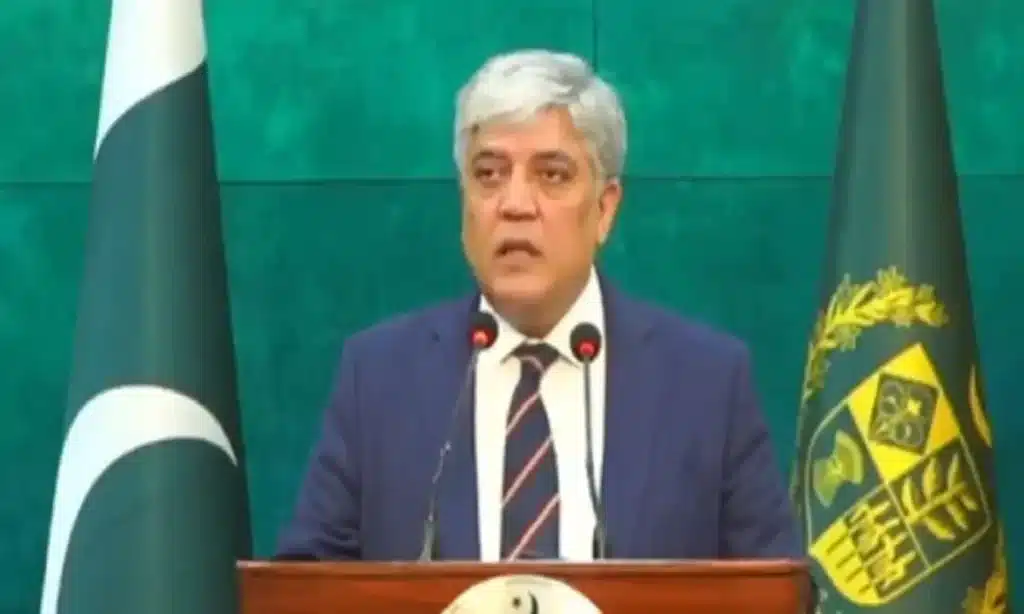ISLAMABAD: Pakistan Permanent Representative to UN Ambassador Asim Iftikhar Ahmad said that United Nation leadership supports Pakistan stance on Indus water treaty and have warned the Indian government not to suspend the treaty unilaterally.
Talking to a news channel, he said that World Bank is a major arbitrary party in this treaty and they have also fully support Pakistani stance. He said that this is not an easy task for india to withdraw this treaty so easily.
The United Nations and various international law experts have criticized India’s stance, arguing that it violates core principles of treaty law and peaceful conflict resolution. There is growing concern that such actions could destabilize South Asia further and erode the integrity of other international water-sharing agreements.
India’s recent decision to place the treaty “in abeyance” following the Pahalgam terrorist attack has sparked international concern. The move was widely interpreted as a form of retaliation against Pakistan, which India accuses of supporting cross-border terrorism. However, legal scholars and international observers argue that India’s action is inconsistent with established principles of international law.
Unilaterally suspending or withdrawing from a treaty is not generally permissible under international law unless certain conditions are met. The Vienna Convention on the Law of Treaties, although not signed by India, codifies principles that are widely regarded as customary international law. These include the requirement to honor existing treaties (pacta sunt servanda) and to resolve disputes peacefully. The treaty also outlines specific steps for addressing conflicts, such as referring the matter to neutral experts or engaging in arbitration. India’s bypassing of these procedures undermines both the spirit and letter of the agreement.
Indus Waters Treaty (IWT), signed in 1960 and brokered by the World Bank, is a crucial agreement between India and Pakistan that governs the allocation and management of the water resources of six rivers flowing from the Himalayas. It grants India control over the eastern rivers—Ravi, Beas, and Sutlej—while Pakistan receives control over the western rivers—Indus, Jhelum, and Chenab. The treaty includes mechanisms for cooperation, information sharing, and dispute resolution, including provisions for neutral experts and arbitration in case of disagreements.
Moreover, the act of suspending the treaty has been seen as an attempt to weaponize water, which raises humanitarian and ethical concerns. Pakistan, already grappling with climate stress and water scarcity, is highly dependent on the Indus river system for agriculture, drinking water, and electricity. Using water as leverage in a geopolitical dispute sets a troubling precedent, particularly in a region already fraught with tension and environmental vulnerability.
India’s move, while politically symbolic, risks long-term damage to regional stability and international legal norms. The consensus among experts remains that disputes over shared resources must be resolved through dialogue and legal mechanisms, not unilateral coercion.
Read also: IWT remains suspended despite ceasefire, sources say





